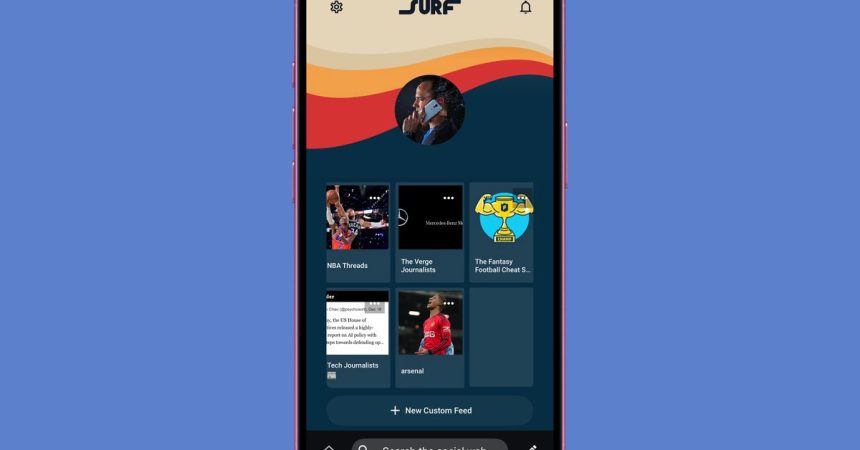Mike McCue, CEO of Flipboard, envisions a future internet centered around a decentralized social web, a concept he prefers to call “the social web.” He believes this interconnected network of platforms like Mastodon and Bluesky represents the next evolutionary step for online interaction. To this end, Flipboard itself is undergoing a complete transformation to become a fully decentralized platform for content discovery and consumption. While this undertaking is progressing smoothly, it might not achieve the immediate dominance that Threads could potentially wield if it fully embraced open standards.
Simultaneously, McCue and his team have been developing Surf, an application he describes as the “world’s first browser for the social web.” This concept, initially presented over a year ago, has evolved from mock-ups and presentations into a functional beta app. Surf aims to navigate the evolving internet landscape where feeds, rather than websites, become the primary mode of content delivery. In this paradigm, users would access content via feeds like their Threads timeline, Bluesky Starter Packs, or individual creator feeds, rather than visiting specific websites.
Surf’s core function is to facilitate the discovery and exploration of these diverse feeds, encompassing ActivityPub (used by platforms like Mastodon and Threads), AT Protocol (powering Bluesky), and RSS feeds. Users can search for feeds by topic, publisher, or creator, and they can curate personalized feeds by combining existing ones. These curated feeds can then be shared and further recombined by others. The user experience is envisioned as a streamlined, vertically scrolling feed, blending aspects of Twitter timelines and the Apple News homepage.
One of the key challenges for Surf lies in its ambition to handle a wide array of content types. It must function effectively as a social network, news aggregator, video platform, and podcast player, all within a single interface. Achieving this multifaceted functionality while maintaining a high level of quality across all areas presents a significant design hurdle. The app’s strength lies in its ability to seamlessly integrate various content formats, presenting videos in a TikTok-style endless scroll, formatting articles with prominent images and headlines, and offering a less dense scrolling experience reminiscent of Flipboard’s magazine-style layout.
A standout feature of Surf is its automated feed filtering. Users can create composite feeds from various sources and then filter them to display only specific content types, such as videos or podcasts. While Surf isn’t yet a fully realized platform for all these media types, it shows promise as a versatile tool for consuming diverse content. However, challenges remain, including messy search results due to the aggregation of disparate platforms and limited interactivity, particularly outside of Mastodon. For the foreseeable future, Surf is likely to be more effective as a content consumption tool than a fully interactive social platform.
McCue’s vision extends beyond simply aggregating feeds. He views the social web as a paradigm shift, comparing the current stage to the early days of AOL, a “walled garden” of innovation. He likens Surf to the early Yahoo, a curated collection of feeds. Future plans include monetization through paid feeds, enabling publishers, creators, and curators to generate revenue, and customizable feed designs, allowing for a more personalized homepage-like experience. Significant work remains in building out the platform’s functionality and fostering wider adoption of the underlying protocols and tools. Despite the challenges, McCue remains steadfast in his belief in the decentralized social web, undeterred by the complexities of interoperability between different protocols and the growing pains experienced by platforms like Threads. He sees Surf as the solution to these challenges, enabling a unified experience across the fragmented social web. He highlights how Surf can aggregate content from diverse sources, such as Bluesky, Mastodon, Threads, and Flipboard, under a single hashtag, providing users with a comprehensive view regardless of the platform of origin. This ability to curate and filter content across the social web, irrespective of the source platform, exemplifies McCue’s vision for a truly interconnected and decentralized online experience.



